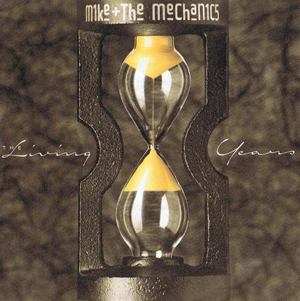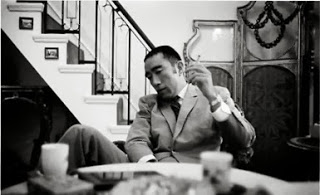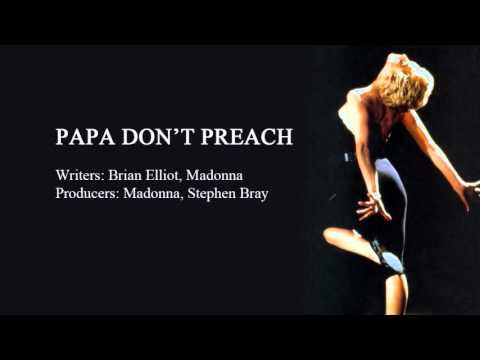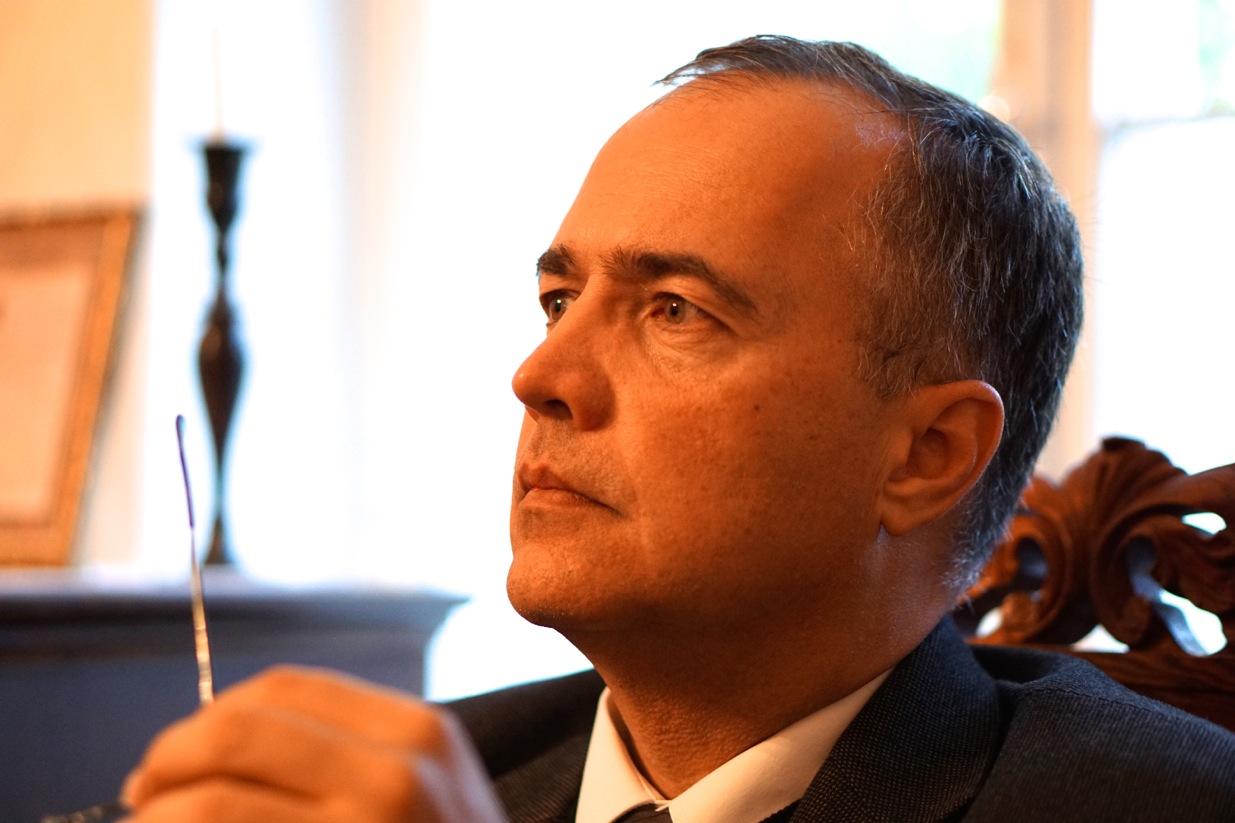What follows are programme notes for the “Conservative Song” segment of Radio Carpe Diem compiled by Dominik Giemza. The notes were produced for a broadcast of Monday, 16 August 2010, and form the basis of a live on-air discussion about conservative and traditionalist themes that can be inferred from items of popular music. Radio Carpe Diem is Australia’s only paleoconservative and traditionalist radio programme and can be accessed online or free to air at 88.9FM at 8:00pm to 10:00pm Mondays (Sydney, Australia). Readers’ comments are welcome here at SydneyTrads. Listeners are encouraged to tune in and engage in the discussion.
The Wisdom of Fathers
 Introduction
Introduction
Sometimes fathers are not visible amongst the detritus of popular culture. But they are always with us, as night is today they are a part of the life of each and every one of us, and occasionally they take centre stage when a wise writer puts pen to paper. So it is with today’s song, “In the Living Years” which in an interview with Mojo in 1996, none other than the great Burt Bacharach said was one of the finest lyrics of the decade.
Background
The song was written by Mike Rutherford and B. A. Robertson in 1988. Interestingly Mike Rutherford is a supporter of the UK grass roots political movement Countryside Alliance (of which Bryan Ferry and Eric Clapton are also supporters). Rutherford was a founding member of the classic UK band “Genesis” and went on to found the great band that first performed this song, “Mike and the Mechanics.”
It was first released as a single by “Mike and the Mechanics”, becoming a top ten chart hit around the world. It peaked at number one on the Billboard Hot 100 in the USA on March 25, 1989; it also reached number one 1 in Canada and Australia and number 2 in the UK.
The “Mike and the Mechanics” version was (according to Wikipedia) initially promoted to give the impression the lyrics described the disagreements between Rutherford and his father. But in an interview with the Sun Online in 2004, Mike Rutherford said:
“The lyrics were written by BA [Robertson] and the song is about something he went through. He lost his Dad and it’s about the lack of communication between him and his father before he died. There’s also the irony of him having a baby just after losing his father. I had exactly the same thing happen to me at the same time, so it meant a lot to me too.”
It is also worth noting that the father of Paul Carrack (the lead singer of “Mike and the Mechanics”) died in an industrial accident when he was eleven.
The song has had quite a following amongst performers since the original release. According to Wikipedia there are dozens of known recordings of the song, instrumental as well as vocal, reggae to classical crossover, from artists as diverse as American country rock band “Alabama”, West End theatre star Michael Ball, Australia’s own Marcia Hines, Engelbert Humperdinck, James Last, The London Symphony Orchestra, Christian Artist Russ Lee, John Tesh, Russell Watson, and the London Community Gospel Choir.
Notes for the Discussion
The over arching theme of this song is to embody lyrically two great quotes from a great Conservative – Sir Winston Churchill:
“If you’re not a liberal at twenty you have no heart, if you’re not a conservative at forty you have no brain.”
“Courage is what it takes to stand up and speak; courage is also what it takes to sit down and listen.”
This is a song about growing up and growing up, and reconciling the rebelliousness of youth with the wisdom of experience. It is about seeing that the past holds the key to the future and that fighting the past is no way to such a future:
So we open up a quarrel,
Between the present and the past,
We only sacrifice the future,
It’s the bitterness that lasts.
Yes it is couched in cross generational disagreement, but the song is ultimately about a moment of epiphany where the new father begins to see his own father in a different light, and reassesses the past as part of a cross generational continuum between fathers and sons. This is most evident in the second verse:
I know that I’m a prisoner,
To all my Father held so dear,
I know that I’m a hostage,
To all his hopes and fears,
I just wish I could have told him in the living years.
The words “hostage” and “prisoner” are harsh but note that the son is wishing that this is something that he admitted to his father not something that he is now criticising. For is it not the duty of a father to pass on all they held dear to their “captive” audience – the family that they raise and have dominion over.
Indeed I would argue that even the “disagreement” that is repeated in the chorus seems to be resolved by a new found understanding that disagreement is simply part of the generational cycle part of growing up and being your own man:
Every generation,
Blames the one before,
And all of their frustrations,
Come beating on your door.
This is not a son clinging to old arguments, this is a son realising what fathers must deal with and regretting that he didn’t share this understanding with a father that passed. Sometimes it takes fatherhood to see the importance of fatherhood:
I’m sure I heard his echo,
In my baby’s new born tears.
Conservatism is not about always agreeing with your parents on everything, but it is about taking the step to listen to what they say and to take in their perspective as needlessly fighting that perspective may be taking away from what you may give to your family in the future.
It is about seeing your place in the greater whole, as part of a continuum of received wisdom and knowledge, as part of what your parents hold so dear (and their hopes and fears). Such wisdom sometimes is only recognised when one matures and when the experience of death and birth allows us to put youthful rebellion in context.
Lyrics
Every generation,
Blames the one before,
And all of their frustrations,
Come beating on your door.I know that I’m a prisoner,
To all my Father held so dear,
I know that I’m a hostage,
To all his hopes and fears,
I just wish I could have told him in the living years.Crumpled bits of paper,
Filled with imperfect thought,
Stilted conversations,
I’m afraid that’s all we’ve got.You say you just don’t see it,
He says it’s perfect sense,
You just can’t get agreement,
In this present tense,
We all talk a different language,
Talking in defence.Say it loud, say it clear,
You can listen as well as you hear,
It’s too late when we die,
To admit we don’t see eye to eye.So we open up a quarrel,
Between the present and the past,
We only sacrifice the future,
It’s the bitterness that lasts.So Don’t yield to the fortunes,
You sometimes see as fate,
It may have a new perspective,
On a different date,
And if you don’t give up, and don’t give in,
You may just be O.K.Say it loud, say it clear,
You can listen as well as you hear,
It’s too late when we die,
To admit we don’t see eye to eye.I wasn’t there that morning,
When my Father passed away,
I didn’t get to tell him,
All the things I had to say.I think I caught his spirit,
Later that same year,
I’m sure I heard his echo,
In my baby’s new born tears,
I just wish I could have told him in the living years.Say it loud, say it clear,
You can listen as well as you hear,
It’s too late when we die,
To admit we don’t see eye to eye.
– Dominik Giemza
The writer is a legal practitioner and the co-host of Carpe Diem Radio’s regular segment: the “Conservative Song” . The above notes were drafted for a live and on air debate about conservative and traditionalist themes which can be found in popular music. Listeners can access Radio Carpe Diem either on air at 2RSR 88.9FM in the greater Sydney region, each Monday between 8:00pm and 10:00pm, or streaming live via TuneIn.com. Feedback is welcome.




Be the first to comment on "Thinking Right About Pop Culture: Mike Rutherford and B. A. Robertson “In the Living Years”"